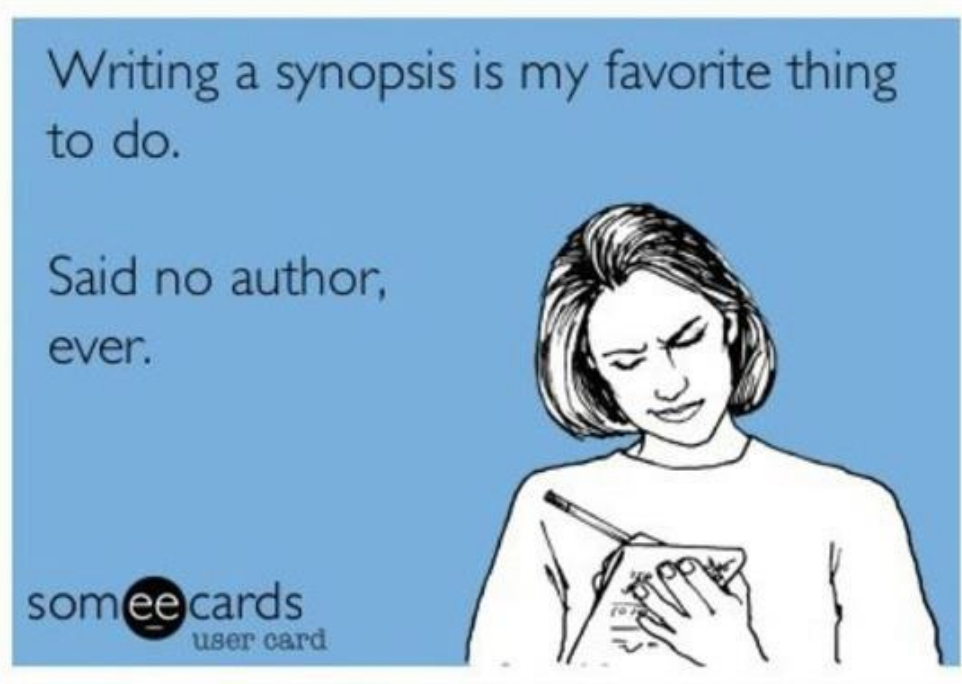

There is one word known to strike fear into the hearts of most writers. Synopsis. Most of us would rather perform brain surgery from space using a lemon zester and a squirrel than be forced to boil down our entire novel into one page.
Yes one.
But alas we need to embrace the synopsis for numerous reasons. First and foremost, if we want to land an agent, it works in our favor to already have an AWESOME synopsis handy because the odds are, at some point, the agent will request one.
Sigh. I know. Sorry.
A Quick Aside
When it comes to synopses, I lean toward the, ‘Better to beg forgiveness than to ask permission’ camp. Which is where already having a seriously spiffy synopsis helps.
Think of it this way. E-mail sucks. Getting lots of email and having to juggle it all sucks. Agents get a lot of email.
Since I am also a person who gets a ridiculous amount of email, I can tell you with conviction that I LOVE people who save me work. They do this by saving me steps.
Most queries these days are via email and since agents don’t like getting their computers crashed by a virus? This means the query will be pasted into the body of the email (no attachments).
Believe it or not, agents like writers. In fact they need writers. They don’t get paid without a writer and last I checked agents also really like being paid in money—not adorable pigmy goats and trust me you will only make THAT mistake once.
Where was I? Oh, the Synopsis
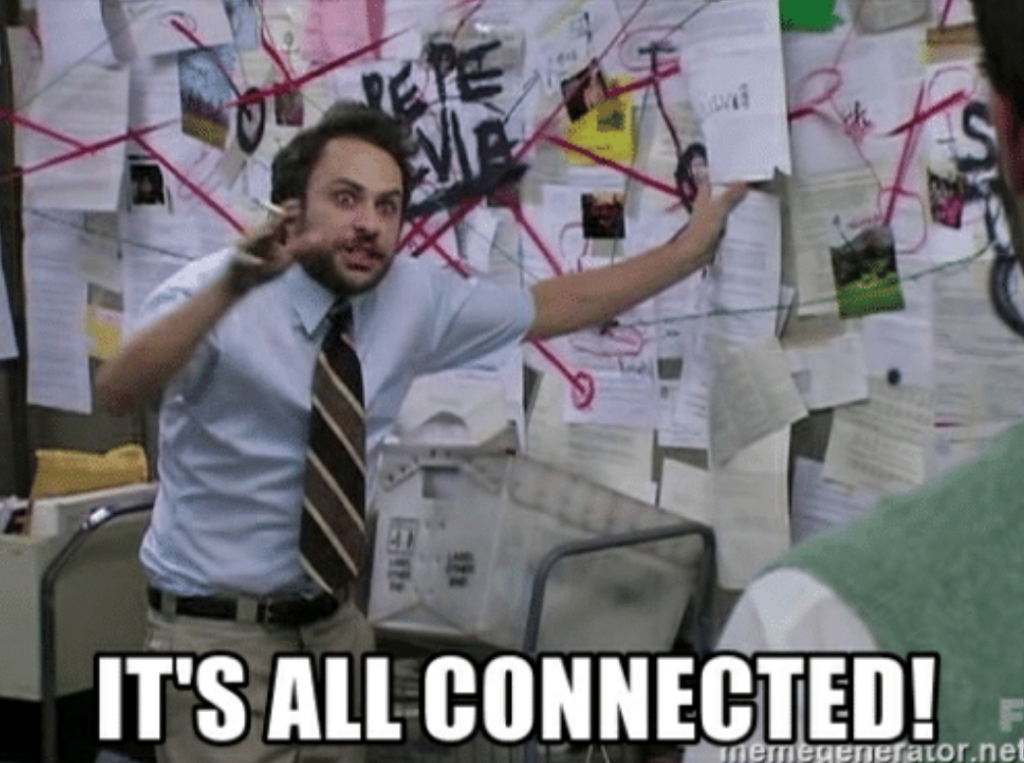

Agents need writers. Just as much as they are looking for reasons NOT to read our book, they are simultaneously looking for reasons TO read our book.
I know it’s a paradox much like time travel. Don’t think about it too long or your brain will cramp.
In my opinion, there is nothing wrong with ending your query with: I have taken the liberty of pasting the one-page synopsis of my novel below for your convenience.
Worst case scenario? They don’t scroll down and read the synopsis. OMG!
But best case is they DO scroll down, read the synopsis, and they like it! Better yet, you’re off to an awesome start because you just saved them a crap-ton of time and email Ping-Pong.
Why Do We Need a Synopsis?
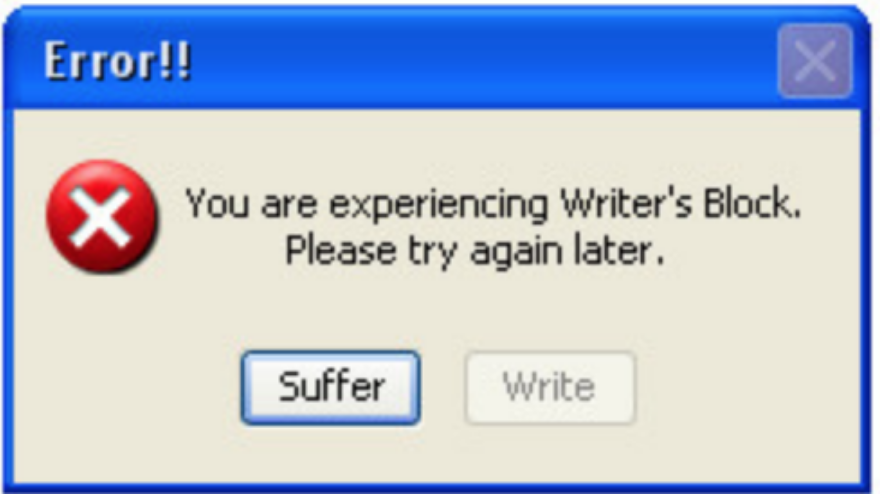

If you don’t want to automatically include the synopsis that’s fine, but if you write a really good one (which IS possible if the story is strong)? Why wouldn’t you?
All right, so what if you aren’t brave enough to include a synopsis and are just praying that the subject never comes up and the agent just asks for a full.
Okay, great! Problem is, if you do get a book deal, often the editor will want you to write a synopsis of the book you are writing next (for approval of course).
Ugh, so if you go with a traditional/legacy publisher, really no dodging it.
Some of you might be saying, Oh, but Kristen! Traditional is sooo yesterday and I am self-publishing. I don’t need a synopsis.
First of all, any indie house worth their salt will ask for a synopsis, so sorry to burst your bubbles there.
Also…
Technically correct, but actually I do recommend a synopsis for all the reasons writers loathe writing them.
Why All the Angst?
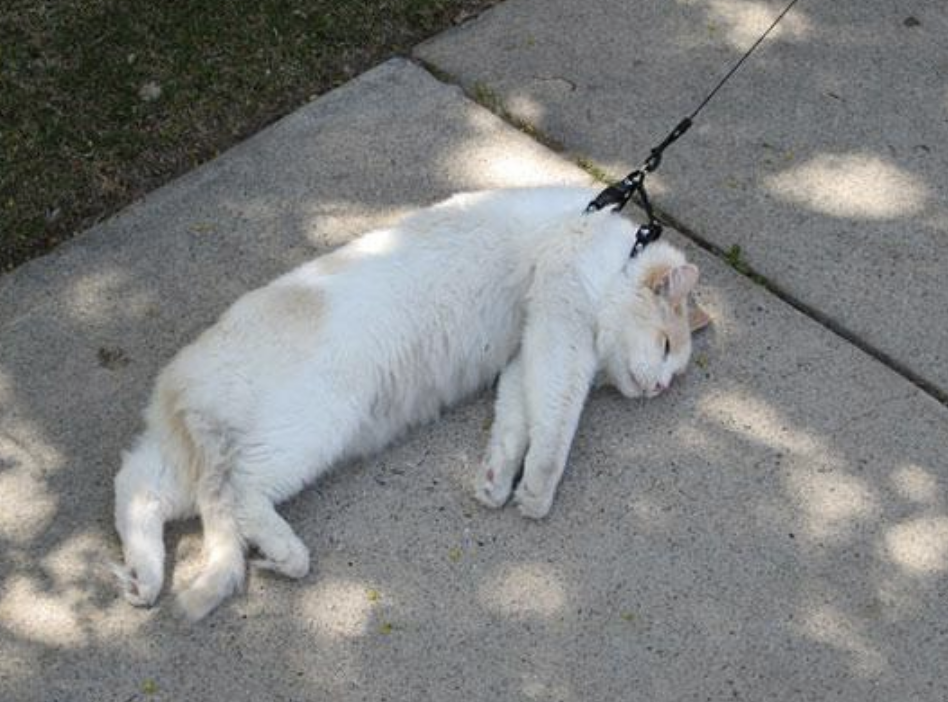

So a big reason that writers hate writing a synopsis with the power of a thousand suns is that we believe every word we have written is precious and every character vital and necessary.
We lack perspective, especially if we haven’t had any time or distance away from the work. This is normal.
But a bigger reason that many writers hate writing the synopsis (particularly for first-time novels) is it makes it painfully obvious we have no story or a terribly flawed story.
The synopsis strips away our pretty prose and all our verbal glitter and it lays our story bare.
Today I want to talk about the BIG PICTURE stuff. What is it our synopsis is really out to reveal? If we don’t first grasp that, no amount of tips I give for writing a great synopsis will help.
Synopsis as Skeleton


We don’t need a lot of imagination (or a medical degree) to see how this skeleton above is going to flesh out, pardon the pun. One can see just at a quick glance that this human skeleton is going to have a lot of problems because of the various deformities.
The same holds true with a story skeleton. If the narrative orbital sockets are located in the posterior, we don’t care how pretty the eyes are if they are in the @$$.
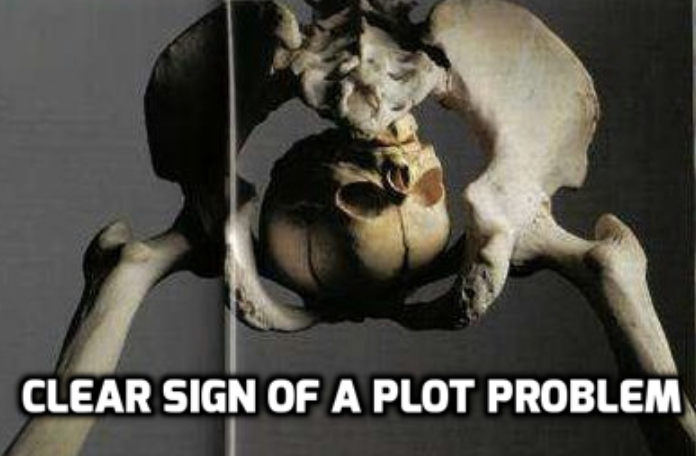

There is no amount of witty dialogue or clever prose that is going to rescue a plot that is missing vital parts or has them in the wrong place.
Yes, we are sending a synopsis in hopes of selling a story, but how is the synopsis doing this? Plain and simple? The synopsis is letting the agent see if the skeleton is solid, symmetrical and is of a creature that is rare, cool and maybe never seen before in this rare, unique FORM.


Too many new writers want to create the ‘NEVER seen before story.’ But that is way TOO weird. Readers need a baseline. A same, but different. Think dinosaurs. MILLIONS of visitors flock to The Field Museum. We all know what a dinosaur is, but we all wanna see a T-REX.
Same…but different…and COOL.
Note that The Field Museum doesn’t get MILLIONS of visitors annually to see part of a T-Rex. A tail, a jaw, a spine. No.
Visitors want to see the entire skeleton. Even without flesh, tendon, muscle and bone, their imaginations go WILD even with essentially the synopsis of a dinosaur.
Synopsis and Fatal Flaws
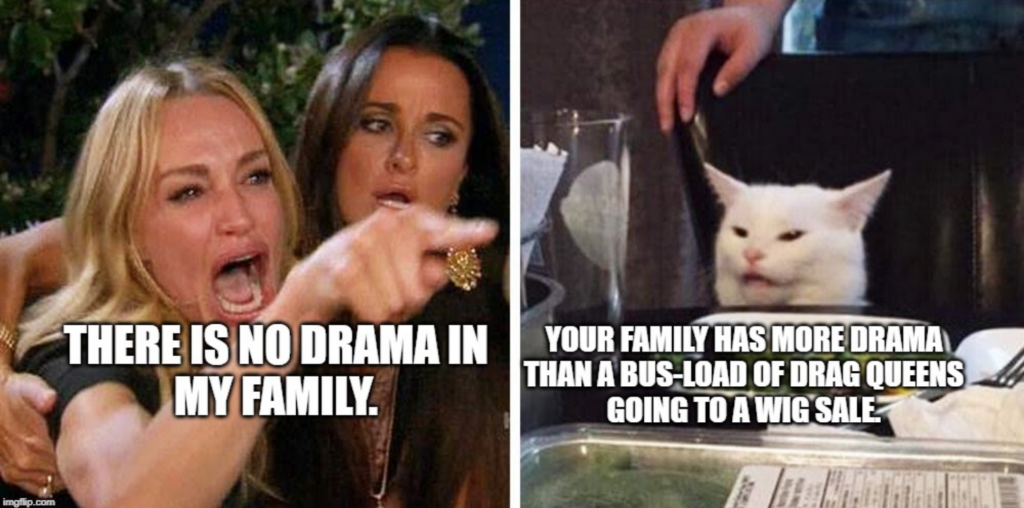

Remember, an agent is namely looking at a synopsis because she knows it is the fastest way to reveal terminal (deal-breaker) errors.
For the self-published folks. Technically you don’t need to write a synopsis, but if you can’t for any of these reasons below, the novel might not yet be good to go and this could save a bunch of nasty reviews, or no reviews, or your novel never selling and remaining in literary limbo forever and ever amen.
It’s also a FABULOUS way to contain plot bunnies. When I have a fantastic idea for another book?
The best way to maintain focus (I have found) is to sketch out a quick synopsis and file it. Let the ‘boys in the basement’ work on it while you FINISH the current WIP.
The synopsis will be there when you’re ready to dedicate the time and full attention to it. After you’ve had time and space away from it, you’ll be able to see if it is still as AMAZING as it seemed when it popped in your gray matter and tried to distract you from editing and revisions.
Is the premise weak?
I get pages all the time from ‘finished novels’ but there actually is no story. Just because an author has 80,000-100,000 words does not mean he has a story. Nope, it means he has 80,000-100,000 words. It’s better than no words, but not a story.
Is it really a novel or just melodrama?
Do we have a solid plot or just ‘scene’ after ‘scene’ of bad situations? This is what I call ‘soap opera writing. There is no core story problem to be resolved by the end of the book.
We just get page after page of talking, eating, shopping, bad stuff happening, characters talking about other bad stuff that has already happened. Loads of plot puppets, flashbacks. Great for Days of Our Lives, bad for the page.
Does the ‘plot’ rely on trickery? Gimmick?
Often writers are having a panic attack about writing the synopsis because the entire book rests on a ‘clever’ twist ending that often really isn’t a twist but rather a gimmick.
E.g. It was all really a bad dream.
NO.
Does it require deus ex machina to resolve?
I call this a Luck Dragon. So protagonist is enduring plight after plight and all seems lost when she finds—dun dun dun—a journal!
NO.
Does it really resolve?
New writers often don’t understand structure, which naturally means they don’t yet understand that series follow similar structure guidelines to a singular novel. And btw, it is OKAY to be new, so breathe!
Even series still follow three act structure. But say the story follows four or even five act structure. Doesn’t matter. The story is not over until the core story problem introduced in the beginning is resolved.
Series work the same way. If it is a connected series, then it works a bit like those Russian nesting dolls. Every book has a bigger and bigger problem to solve until finally the CORE problem is solved/antagonist is defeated.
In LOTR: Uruk-Hai defeated—> Saruman defeated—>Sauron defeated
Which means NO 1960s BATMAN ENDINGS.
Stay tuned for next week book!
Often I get, Oh well the reader will have to read the next book to know if she lives. Nope, not how that works unless we write for As the World Turns.
No matter the structure we use, our story must come equipped with a satisfying resolution or that skeleton is missing arms. In the case of a connected series, often a gatekeeper to the Big Boss is defeated but the journey continues toward that final showdown. No being clever by withholding a resolution.
There is only one The Lady or the Tiger? and the only reason that story is read at all is because it’s one of the only ways English teachers can get back at us for having to read our crappy essays.
Is the writer breaking genre constrictions in unforgivable ways?
For instance, romance comes with an HEA (happily ever after) or the more modern HFN (happily for now). No HEA or HFN? It ain’t romance.
And, if the author is selling it as romance in the query, but the story ends in a breakup? The agent knows this is a new writer who doesn’t understand her genre and the very strong and clear expectations.
Is the story just not all that remarkable?
Once the plot is laid bare, is it truly anything unique? A fresh twist on an old idea? Or is it really just more of the same?
My book is about a thirty-eight-year-old female executive who decides she wants to have a baby and the struggle of being an older mom.
Okay *falls asleep*.
My book is about a thirty-eight-year-old female executive who finds out she’s pregnant with her first child at the same time her teenage stepdaughter reveals she, too is expecting.
*perks up* Hmmm, interesting.
The Good News About the Synopsis
When we can write a concise and interesting synopsis, it shows our level of skill and the strength of our story. If we can write tight and clean here, it bodes well for the book. If your brain is in knots writing your synopsis, relax.
If the story is there the synopsis is too. It’s just a matter of unearthing it.
Though we will talk more on how to do this later, I do recommend starting with forming a log-line. If you can boil your entire book into one sentence? The synopsis can be built using that and it is far easier to build UP TO one page than whittle DOWN three hundred pages into one page.
Here is an earlier post about how to do the log-line. Additionally, if you need more help, I do a class on how to do your log-line and the added benefit is I do your log-line WITH you so you walk away from class with that in hand.
We’ll be scheduling that class next week when we put the classes together. Getting over bronchial pneumonia is a BEAST. I have missed teaching!
But, if you struggle with plot, I am offering my two FAVORITE CLASSES. I’m doing a For the LOVE of WRITING Special. The prices are NOT as low as the New Year’s Specials but still really, really low.
ON DEMAND: Bring on the Binge: How to Plot and Write a Series
Normally $75 and now only $50 and this is over four hours of instruction on everything you need to know about plot. So if you want to know about the synopsis? You will BLOW it out of the water after this.
Also…
ON DEMAND: The Art of Character for Series
Normally $75 and also only $50 and this class pairs excellent with the plotting class (like a fine chardonnay and a Chilean sea bass). Treat yourself! Tell your sweetheart that THIS gift won’t require extra gym time.
Also, though these classes are gems, unlike diamonds, these won’t last forever.
Once I put in the new classes and curriculum these classes will be deleted/go into cold storage. Would have happened sooner but bronchitis has had a different schedule in mind 😉 .
Roll with it, LOL. Anyway…
Happy Valentine’s Day & I LOVE hearing from you!
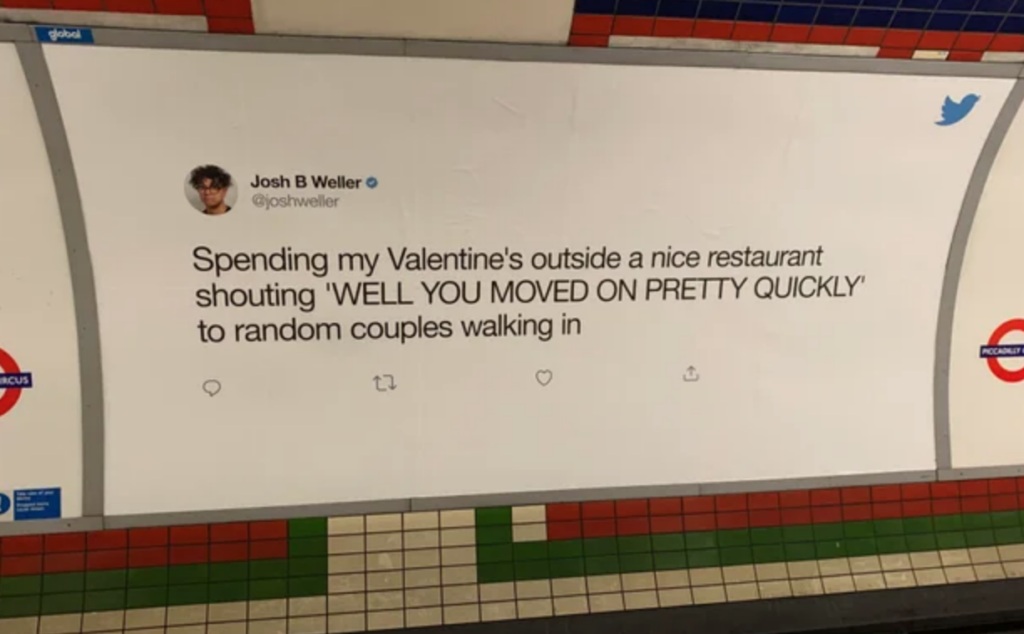

What are your thoughts? Have you been struggling with the synopsis and think it’s because there might be bigger issues going on? Are you a more seasoned writer and remember the nightmare of trying to fit a first-time ‘novel’ into a single page? Any thoughts? Questions? Suggestions?
